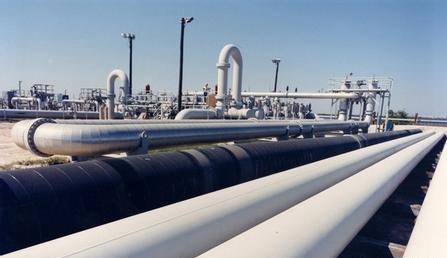By Christina Kitova, associate partner Hodges Media, based in Markham, Ontario Canada
Canada and China have maintained strong business relations for the last forty-six years. China is an important player on the international stage, from an economic and geopolitical perspective. China's GDP (gross domestic product) will continue to grow over the next two decades and China's demand for energy has surpassed the U.S.A.

Meanwhile, Canada holds immense energy resources and very interested in maximizing its economic returns, especially in Alberta. Alberta is stable vs the current oil & gas imports from other regions, which are volatile due to numerous factors.
By 2035, China will become the largest leading energy consumer, accounting for 70 percent of global usage. Right now, Canada is re-branding itself as a world class supplier of energy and establishing better ties with China, both strategically and economically.
Ottawa has offered greater support for an economic partnership with China. Beijing hopes to diversify its portfolio of energy sources and to be less of reliant on the Middle East to avoid potential disruptions of a steady energy supply.
China also happens to be the largest foreign investor of renewable energy in Canada, having purchased Nexen.
The Canada-China Business Council and Canadian Council of Chief Executives Report states that a trade deal between China and Canada would boost Canadian exports number to 7.7US billion within a fifteen year span, creating thousands of jobs not only for Alberta, but for the rest of Canada as well.
The Canada-China Foreign investment promotion and agreement (FIPA) had gone into effect on Oct. 1, 2014. Canada's energy industry has benefited much from China's direct investments in the country. China has obtained over $30 billion (USD) in Canadian oil and gas over the last 5 years alone.
Canada is China's 16th largest supplier of natural resources and has committed itself to utilizing clean energy since Oct. 2013.
The Canadian uranium company Cameco has shipped its production supply to China as part of two long-term uranium supply contracts with the China Nuclear Energy Industry Corporation.
The contract is for the amount of 23 million pounds of uranium concentrate through 2020 and the other contract is with China Guangdong Nuclear Power Holding Co., Ltd. for another 20 million pounds through 2025 in order to decrease its nation's dependency on coal. Beijing is committed to obtain 20% of its energy from renewable resources, including nuclear power by 2030.
Clean technology has become one of Canada's fastest growing market sectors, expanding nearly 10% annually since 2011. Alberta has opened a third office in Guangzhou to promote economic partnerships. Additionally, Toronto is the first Yuan trading hub, which was launched in 2015.
The hub helps SMEs (small medium-sized enterprises) to reduce costs when buying and selling RMB, if there is insufficient RMB liquidity within affected institutions. Ottawa has positioned itself to benefit strategically in a trade partnership with Beijing.
The TPP (Trans-Pacific Partnersfhip) free trade deal could be positive for China-Canada financial relations. China has already led the Regional Comprehensive Economic Partnership (RCEP) initiative.
The BC First Nations Energy and Mining Council (FNEMC) has developed this First Nations-China Strategy to promote collaboration between First Nations and China, particularly with Chinese companies and natural resources developments in Canada.
China's interest in the FTA (free trade agreement) with Canada can expand foreign trade and investment that would accelerate economic growth.
The other industries benefitting are those sectors trading in auto-parts, chemistry, mechanical manufacturing, agriculture, and aerospace. While China continues to build railways, it will have to purchase more railcars to service regional routes.
An FTA with China will help Canadian companies stand on a more equal trade footing with Chinese companies seeking to build railways and railcars.
( The opinions expressed here do not necessarily reflect the opinions of Panview or CCTV.com. )

Panview offers an alternative angle on China and the rest of the world through the analyses and opinions of experts. We also welcome outside submissions, so feel free to send in your own editorials to "globalopinion@vip.cntv.cn" for consideration.















